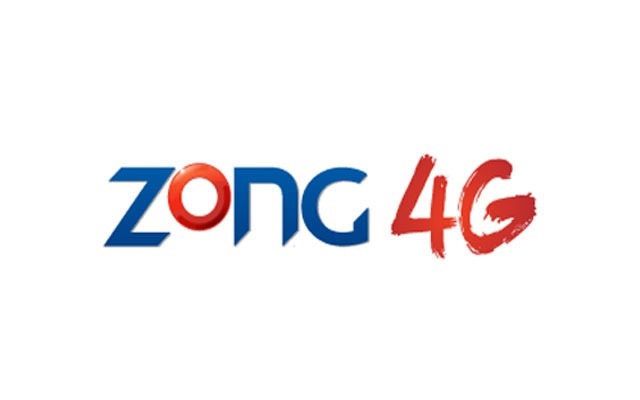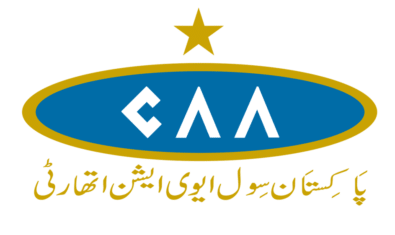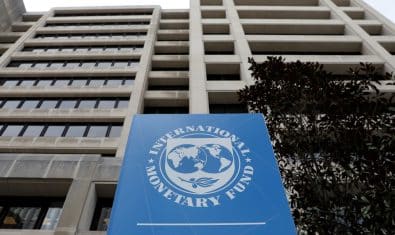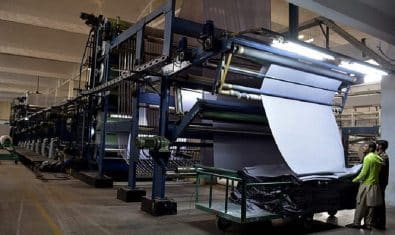
Zong, that has won 4G license in Pakistan, can take around a year or so in launching 4G network in Pakistan, said Dr. Fan Yunjun, Chairman and Chief Executive Officer of Zong, yesterday during its press conference on 3G and 4G.
When asked by ProPakistani, Dr. Fan confirmed that it has contracted a vendor for 4G deployments, however, a live 4G network may take several months to surface in the country.
Zong said that its parent company China Mobile is World’s largest 4G operator with over 252,000 4G sites across China and is that it targeting to double the number of 4G sites by end of this year.
Zong said that it will beat rollout obligation for 4G network in Pakistan too. However, the setup of network from scratch may take some time for the users to experience 4G technology.
On the other hands, company is all ready to launch 3G services after getting a license and NOC from the government of Pakistan, that is planned during first week of May 2014.
Mr. Sikandar Naqi, advisor to CEO of Zong, however hinted that 4G will be made available at a certain location as an experience centre well ahead of launch. “Customers will be allowed to experience 4G services with-in this experience zone before commercial launch of Zong’s 4G network”, confirmed Mr. Naqi.
It is anticipated that Zong will be able to offer 10-15Mbps (actual) speeds on 4G networks.




























Well we r happy wid 3g no need to switch to ufne as m getin avg 2mb speed on ufone..
2 MBPS or 2Mbps?
2Mb/s = 2 megabytes
2mbps= 200 kilobytes
– 2Mb/s is still ‘2 mega bits per second’. For bytes, normally capital ‘B’ is used (e.g., 2 MB/sec = 2 mega bytes per second).
– 2mbps = 250 kB/sec (250~256 kilo bytes per second; depending upon whether you consider 1 kilobyte = 1000 bits or 1024 bits)
While we’re at it.
M (Captial) is for Mega
m (small) is for mili
1Mbps is 1,000,000,000 faster than 1mbps. :D
Why are you misguiding the readers of this post?
1Mbps = 1 Mega Bits per second ==>> It is the connetivity rate which is shown by 2 small computers on ther right side of your notification bar in Desktop PC (OR by wirelss computer if connected by WiFi)
Whenever you download something from Internet, file transfrer rate is in Kilo BYTES or Mega BYTES per second which is shown as MB or KB.
I agree that for Mega you would use capital ‘M’.
‘2mbps = 250 kB/sec’, was actually taken from the previous post ‘2mbps = 200 kB/sec’, I just corrected the 200 into more precise 250 kB/sec.
and …
“1Mbps is 1,000,000,000 faster than 1mbps” ??????
In data communication, there is no such thing as millibytes or milli
bits, the transfer rates are measured in bps, kbps, Mbps, Gbps, Tbps and so on (or kB/sec, MB/sec if you are considering bytes instead of bits). So if people in general write ‘mbps’ they do mean Mega bits per second.
But I agree, instead of m we should use ‘M’ to be more inline with the what is being used in the standards.
Yr kasam sy Mind sub Ulta Phulta kr diya -_- joO thora bohut KB MB ka pata tha woO b Gaya
I don’t know whether you are saying this as sarcasm or you really are confused… but any how:
– Basic unit of information is bit (denoted by small letter ‘b’).
– 1 byte (denoted by capital ‘B’) = 8 bits
Now in digital communications;
– Basic unit of transfer rate is measured in bps (bits per second or bps).
When you have a transfer rate of e.g., 1000 bps (or 1024 bps to be more specific), you can also say, the information transfer rate is 1 kbps (1 kilo-bit per second). Subsequently, 1000 kbps equivalently can be written as 1 Mbps or 1 mega-bit per second (for kilo we use small letter ‘k’, for mega we use capital ‘M’), and then further Gbps, Tbps …. and so on.
Now if you want to know what is the information transfer rate in Bytes per second, then simply divide by 8 e.g.,
1000 kbps = 1Mbps OR
1000 kbps = 125 kBps (125 kilo Bytes per second)
Conversely, when converting from Byte into bit, simply multiply by 8.
1mb = 1 mega bit = 1024 kilo bit = 125 Kilo byte = 125 KB
1Mb = 1 mega bit = 1024 kilo bit = 125 Kilo byte = 125 KB
1MB = 1 mega byte = 8192 kilo bit = 1024 Kilo byte
END OF Story
Picture Abi Baki hy Mere Dost :D
No,
1mb = 1 mili bit.
1Mb = 1 mega bit.
1MB = 1 mega byte.
1mB = 1 mili byte.
Good! Perhaps, Warid and Zong will launch 4G at the same time. 10-15Mbps (Megabits Per Second, it means only 1-1.5 Mega Byte Per Second) speeds on 4G networks. I think it is very low speed as compared to other 4G operators in the world.
hazaro khwahishen aese ke har khwahish pe dam nikley
Badain Niklaain Mere Armaan Phir Bhi Kam Nikly :D
no author written word (actual) so he means 10-15 MBps .. 100 to 150 Mbps.
ha haha… in Australia and UAE.. they reach upto 40 Mbps with 4G. and you think 100 Mbps in Pk.. lol.. this is theorotical speed limit of 4G and they mentioned Actual which definately means 10-15 Mbps which is some how good enough even in US… but if there are less users over some particular cell site. speed might reach upto 40 Mbps…
Does it true that 3G speed may slow download due to increase number of users at the cell site whereas 4G doesn’t?
No. anything that is wireless gets affected by the number of users. So yes even 4G will get slowed down. Even WiFi gets choked when used by a lot of users simultaneously
hmm..!! Thanks for info!
Brother,
why not they offer Dedicated Speed rather than shared…
plz reply at 03457810099
they can but need some more arrangements and the dedicated line of dsl from ptcl or any other company, i think 2 mb connection is morethan 4000 per month.you can imagine on mobile you will get 1 mb with 2 gb around 5000 per month
The prices will go up significantly, if the operators start offering dedicated speeds (or minimum guaranteed speed), because the system will then have to allocate a dedicated amount of resources (time-frequency slots or resource elements etc.) to each user every time=> which translates into more costs for the operator.
Why/How does it cost more for operators? for that you need to have a little technical understanding of how cellular networks function, especially the underlying technologies (GSM, UMTS, LTE etc.). But…in a very simple explanation; mobile operators have limited system resources (time-frequency slots/ codes/resource elements etc), and these resources are shared among different subscribers because the demand for the resources at a given time is more than the supply. Hence, as the number of users increase within a network (well within a cell –> to be specific), the resources are divided amongst the users, hence each user/subscriber will get small portion of the overall resources —> meaning lower speeds. This phenomenon in GSM terminology is called ‘Trunking’.
Layman example of trunking: Take an example of a single road. If you want to go at high speed, the road should be free of any other traffic (vehicles, people etc)…. so in a sense, the road is a resource that is dedicated to you. So at any given time, you will be using a road for going at high speeds. Now, if other vehicles start using the road, you will have to reduce your speed (to avoid collisions). If the NHA, starts dedicating single roads to each vehicle, they will have to build very wide roads (which is costly and not practical in most cases).
The number of users sharing a line/resource is given by contention ratio. This is what PTCL DSL service also uses…. and if I am not wrong PTCL offers ordinary DSL connection with a contention ratio of 1:20 (20 users sharing one line) and this is the reason why you might experience slower speeds during peak time. For dedicated DSL connections ptcl charges you more (because it allocates/guarantees that certain resources are available to you all the time…well most of the time). Similar is the case with 3G services….. you want a dedicated service with peak bit rates, you will have to pay a premium for it… which I am sure ordinary users wont opt for.
Hope its clear.
I have to get back to work :)
very nice article for common people.. i have dedicated 4Mbps and always get 350-400+ speed with out class ping… the reason of this smooth working DSL is heavy cost paid to PTCL… however Evo is shared among lot of users at home and have to suffer from low speed..
great explanations, thanks for your time!
no it ‘doesnt’ true.
4G/LTE might be great at its speed we should not forget its going to be expensive at the same time.. fact is even if 4G is launched by next year adoption of LTE is all depend on how many of us switch to 3G and get use to having better internet connection on the go.. with time.. we all will demand for faster inter when it will become a necessity indeed..
Check todays ad in jang by warid. Its not a rumour any more they are switching directly to 4g without license
Jiay Zong Zinda Bad
ZoNG en sab ki band bajaye ga.
4G speed in UK has change the way we all use our phones, decade ago it was unthinkable to hold a video conference on a mobile phone device such as Nokia, with 4G it has change everything. I would buy my grandparents a 4G handset so I can call them from UK to Pakistan via video call